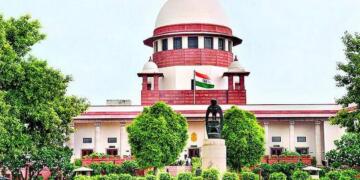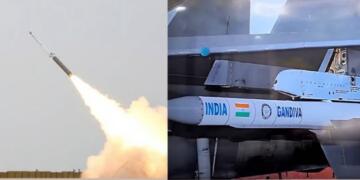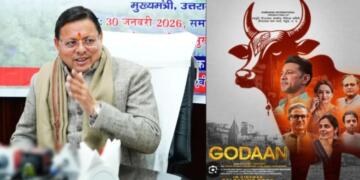Sometimes, I wonder why the learned lords of justice abhor the common man so much so that they laugh on the lives of commoners. The recent judgement on declaring Equal Pay for Equal Work is one such document wherein the law is utopian subject to dystopian exclusions or restrictions.
For the records, learned judges have ruled or overruled earlier judgements of lower court, i.e., High Court to declare henceforth in the welfare state of India, there shall be equal pay for equal work. Like all communist or socialist theories this sounds absolutely beautiful, almost like an insurance policy document. Only here also the small print is larger and opposes the headline.
The Issue, as defined by the Supreme Court:
Whether temporarily engaged employees (daily-wage employees, ad-hoc appointees, employees appointed on casual basis, contractual employees and the like), are entitled to minimum of the regular pay-scale, along with dearness allowance (as revised from time to time) on account of their performing the same duties, which are discharged by those engaged on regular basis, against sanctioned posts.
High Court Judgement that was set aside now by Supreme Court:
Temporary employees were not entitled to the minimum of the regular pay-scale, merely for reason, that the activities carried on by daily wagers and the regular employees were similar. However, it carved out two exceptions, and extended the minimum of the regular pay to such employees.
– If the temporary employee is working in a position that was sanctioned, if appointed after undergoing a selection process based upon fairness and equality of opportunity to all other eligible candidates,
– Even if the position is not a sanctioned one, but the employee was working with notional breaks for sufficiently long time, i.e., 10 years
In these two cases, temporary employee can claim to get minimum of the regular pay-scale.
Present Judgement by the Supreme Court:
There is no room for any doubt that the principle of equal pay for equal work has emerged from an interpretation of different provisions of the Constitution.
The principle has been expounded through a large number of judgments rendered by this Court, and constitutes law declared by this Court. The same is binding on all the courts in India, under Article 141 of the Constitution of India. The parameters of the principle, have been summarized by us in paragraph 42 herein-above. The principle of ‘equal pay for equal work’ has also been extended to temporary employees (differently described as work charge, daily-wage, casual, ad-hoc, contractual, and the like).
With such grandeur preamble if the judgement is delivered, one expects it to be the one that provides ‘justice’. But, the paragraph 42 wherein the parameters of the principle were detailed was more than five pages in length and most of these parameters limit the utilization and effective implementation of the judgement.
I tried to make an abstract of the paragraph 42 but realized its futility before deleting it. Instead link to the judgment is provided.
First, the ‘onus of proof’ is on the claimant. Means no system would be established to have equal pay for equal work. If one feels he is being paid less though he is discharging same responsibilities, he shall approach the court. And, I doubt he would be any richer by the time the case is heard, even he wins the case.
Then there were many parameters that range from the quality of the work expected, level of responsibility, whether decision making is involved, location differences, qualifications, seniority level etc. Equal pay for equal work is not even applicable even when someone is being paid more for want of growth opportunities. And there need not be parity of same grade employees of different organisations.
The point here is all these parameters restricting parity in pay are valid in their correct context. Then, why the Supreme Court took pains to claim that equal pay for equal work shall be provided in India being a welfare state? Even the article 7 of Covenant on Economic, Social and Cultural Rights, 1966 to which India is a signatory was referred to support the utopian concept.
Considering all of the referred cases are related to employment by the state, is it not in the interest of Justice to find out why the so called welfare state and its organisations (PSUs) are trying to subvert the right that was provided in the constitution?
They were doing so only because they simply were trying to cut down costs. By virtue of the judgement, if a government organisation outsources some of the jobs at execution level to a contractor on a long term basis, those employees discharging jobs through contractor cannot claim parity to regular government employees because they belong to a different organisation. This leaves employment against sanctioned posts. It is very easy for the government to make a notification abolishing all those jobs in permanent cadre.
In fact, Supreme Court had a beautiful chance in its hands to rectify many a past wrongs. Though it falls in the dominion of legislature to make laws and policies that govern the way how the government function, the least the Court could do was to advise the government to make a policy that is transparent and would be easier on the government, employees reducing chances of litigation. Instead like politicians, the judges played to the gallery invoking the constitution and international covenants.
Justices delivered this judgement had done a lot of research. Had they looked a bit more, they could have found that US of A, the moral judge of current times has not ratified the covenant. Judges needed to look beyond government establishments to find out the reasons of this malice, if that is what they believe it is. Almost all of Indian Software industry thrives on outsourcing, in plain terms is equivalent of temporary/contract employees. Does it mean the software industry is immoral and doing injustice to the employees? Well, it was not so.
In fact, this industry provided many jobs to people who otherwise would be applying to lower strata jobs in the government. Many current generation engineers working in software industry may not agree with me. Yes, they talk about billions of profits their employers make paying peanuts to them. Well, the employer established the business to make money and not to pay fortunes to employees, especially in an environment when another engineer is available for a lesser salary.
Let me explain the situation earlier. Before the software revolution, there was a time when a graduate in Electronics engineer was employed in a small firm in the outskirts of Hyderabad for ₹1500/- per month. He works in night shift without security. Yes, security guard used to cost ₹3000/- even in 1992. While the employer saves half salary of the security guard and the engineer does some productive work. From those days, it was those entrepreneurs of early nineties who struggled to create the software empire that South India is now famous for. And those who were entrepreneurs in eighties knew how many rounds they need to do to government offices to import ‘one computer’.
Even in the manufacturing industry, the unionisation had become so problematic it is highly difficult for the industries to survive during economic slump. Yet, they need to pay for those officers and workmen. Check how the sick public sector units bleed the exchequer. Rather the court should allow the government to close down those units and transfer the staff to some other place where they can be productive. But, we don’t learn.
Each and every municipality, panchayat and so many other government departments employ contract employees. Rather why the court should not ask the government to make an assessment of how many of these jobs could be given on contract?
If the government or other agency gets the same job done at a lower price, should it not be its responsibility to get the job done at a lower cost? Why waste taxpayers’ money on providing more salaries to the government staff? Are these employees whose pay scales are continuously revised delivering results in line with their salaries?
If the court spends years in analysing a problem and comes out with a socialist declaration or repeating what is written in the constitution, is it not a wastage of national resources, especially when the judgement is too cumbersome to implement. From where the money comes from to pay every employee as per the seventh pay commission recommendations?
I know that Chief Minister of Delhi welcomed the decision and declared they will implement equal pay for equal work. Was it not the same government that had not paid salaries to the corporation employees for months leading to garbage being piled up in the streets of the capital? Of course, what would happen is a notification is released in the gazette and then no salaries are released. Is this how the court wants its judgement to be implemented? Only they can answer.
Considering the equality before law, will the Supreme Court extrapolates its judgement to include private sector? Whose responsibility is it if the employees of the private sector are exploited? Are they not citizens of India? The same constitution is applicable to them also, as much as the same government and judiciary are responsible for their sustenance.
On one hand the court is crying hoarse at vacancies in judiciary not being filled. How can the judges expect the governments to implement their current ruling in letter and spirit? All that would happen is definitions would be more complex. So much so that the court cannot find out the difference in the jobs of sweepers sweeping at the residence of chief minister and chief justice. Our babus are experts in this. The judges may revisit the equal pay for equal work judgement few years later and sigh at the futility of their exercise. Perhaps, then they may realise how they ruined a chance in changing the system for the better, rather than vouching time tested failed socialist slogans.































